Find Help
More Items From Ergsy search
-

Long Covid
Relevance: 100%
-

What are the symptoms of long covid?
Relevance: 89%
-

Long COVID - Managing Breathlessness
Relevance: 87%
-
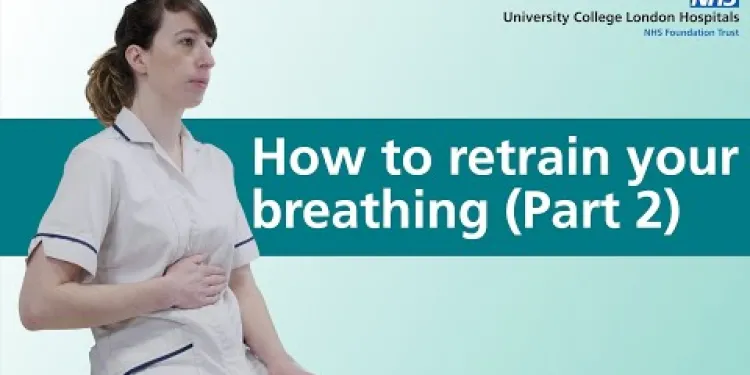
How to retrain your breathing | Part 2 | Asthma, long covid or breathlessness
Relevance: 70%
-
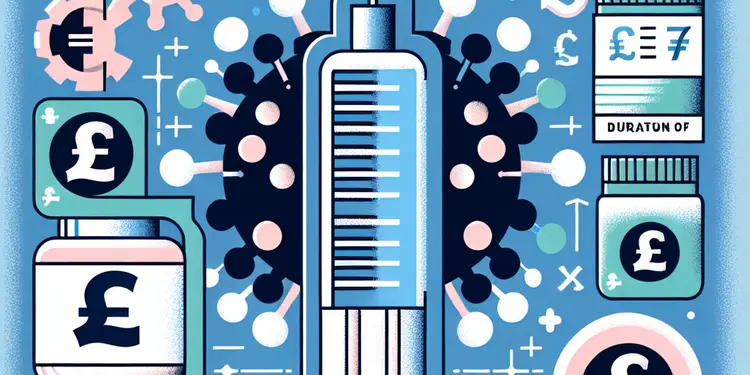
How long does immunity last after getting the COVID jab?
Relevance: 62%
-
New Research Sheds Light on Long Covid Effects
Relevance: 61%
-
What are the benefits of getting a COVID jab?
Relevance: 59%
-
Can the COVID jab give me COVID-19?
Relevance: 58%
-

Are there any long-term side effects of the COVID jab?
Relevance: 55%
-

Are COVID jabs safe?
Relevance: 53%
-
How do COVID jabs work?
Relevance: 53%
-
Should I get a COVID jab?
Relevance: 52%
-
Can air physiotherapy help with COVID-19 recovery?
Relevance: 52%
-
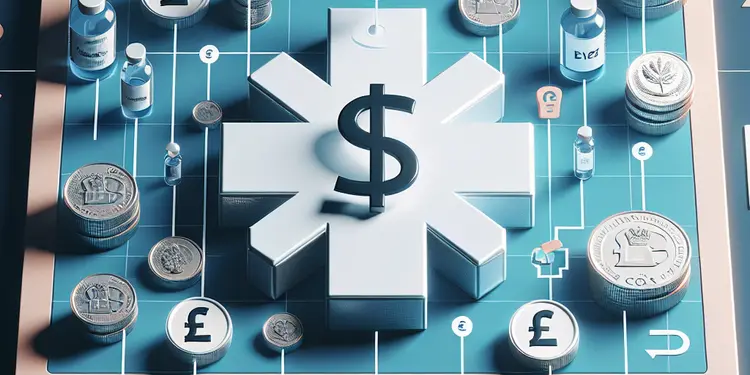
Should I get vaccinated if I already had COVID-19?
Relevance: 51%
-
New Covid Variant Strains
Relevance: 50%
-
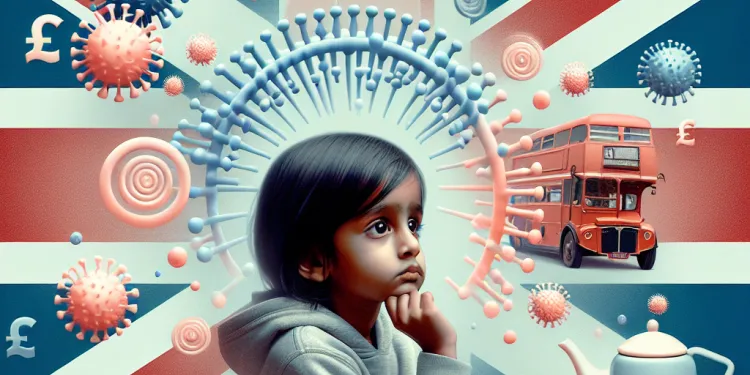
Are children more affected by new variants of COVID?
Relevance: 50%
-

Does the COVID jab affect fertility?
Relevance: 50%
-
Who is eligible to receive the COVID jab?
Relevance: 50%
-
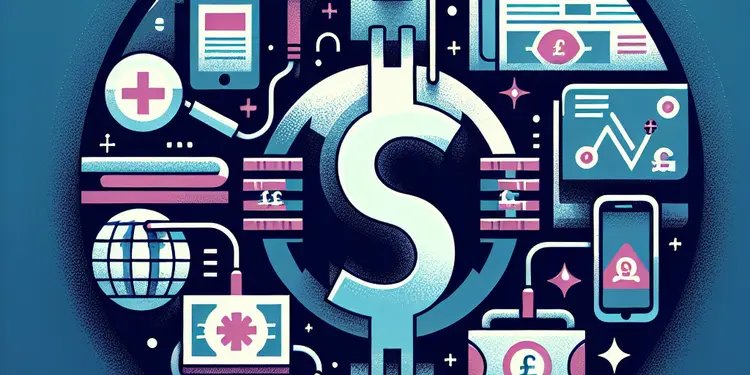
What sources should I consult for information on Covid-19?
Relevance: 49%
-
What is a COVID-19 variant?
Relevance: 49%
-
Can I get the COVID jab if I am pregnant or breastfeeding?
Relevance: 48%
-
How are COVID-19 variants detected?
Relevance: 48%
-

How can I get a COVID jab appointment?
Relevance: 48%
-

Will getting the flu jab protect me against COVID-19?
Relevance: 48%
-
What is the Covid-19 Stratus variant?
Relevance: 47%
-

What are the Nimbus and Stratus variants of Covid?
Relevance: 47%
-

Can I get the COVID jab if I have allergies?
Relevance: 47%
-
Does the flu vaccine protect against COVID-19?
Relevance: 47%
-
How do COVID-19 variants arise?
Relevance: 47%
-
Do new variants affect COVID-19 testing?
Relevance: 46%
-
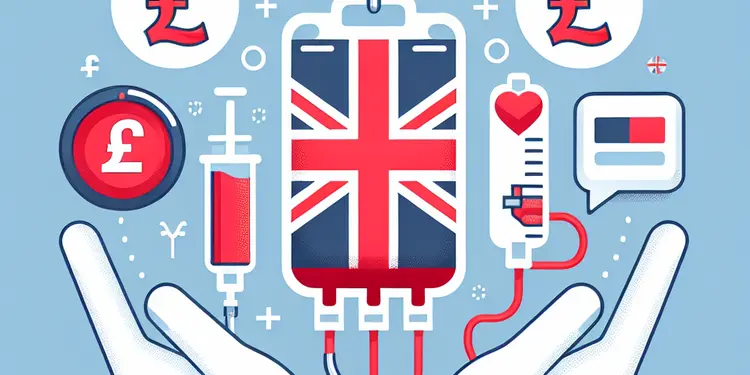
Can COVID-19 be transmitted through blood transfusions?
Relevance: 46%
-

Can I receive other vaccines at the same time as the COVID jab?
Relevance: 46%
-
Does travel insurance cover COVID-19 related issues?
Relevance: 45%
-
What are the COVID-19 travel restrictions for traveling to Spain?
Relevance: 45%
-
Where can I learn about real Covid-19 variants?
Relevance: 44%
-

How do scientists name new Covid-19 variants?
Relevance: 44%
-
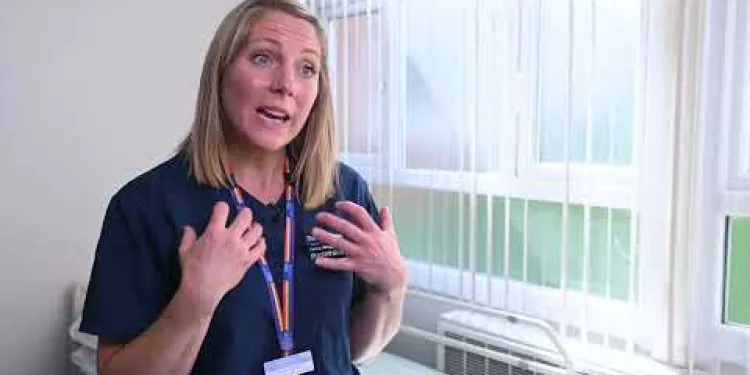
Breathlessness after COVID-19 - helpful techniques
Relevance: 44%
-
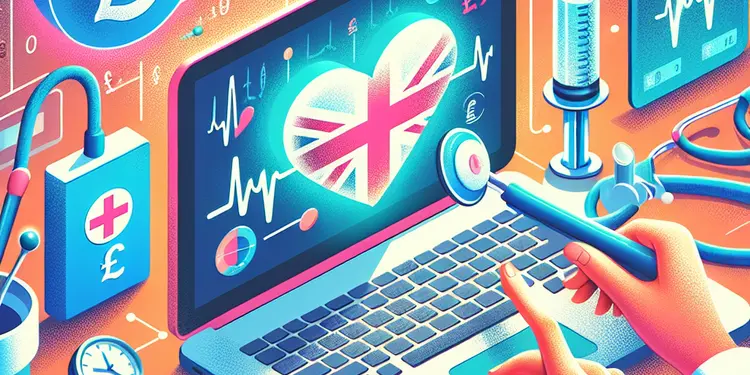
Will I experience side effects from the COVID jab?
Relevance: 43%
-

How can I protect myself from new COVID-19 variants?
Relevance: 43%
-
What is the process to identify a new Covid-19 variant?
Relevance: 43%
Understanding Long Covid
Long Covid, also known as post-acute sequelae of SARS-CoV-2 infection (PASC), refers to the symptoms that persist weeks or months after the acute phase of a Covid-19 infection. As the UK continues to deal with the ongoing impact of the pandemic, understanding Long Covid has become essential. This condition affects a significant number of individuals, even those who initially had mild Covid-19 symptoms or were asymptomatic.
Symptoms of Long Covid
Individuals with Long Covid report a variety of symptoms that can significantly impact daily life. These may include fatigue, shortness of breath, cognitive impairment (often referred to as "brain fog"), joint pain, chest pain, heart palpitations, and altered taste or smell. Some also experience psychological effects like depression and anxiety. The variability and unpredictability of symptoms make Long Covid a challenging condition to manage.
Prevalence and Impact in the UK
In the UK, the Office for National Statistics has estimated that a substantial number of people are experiencing Long Covid symptoms. This condition affects individuals across all age groups, but studies suggest it may be more prevalent in women, middle-aged individuals, and those with pre-existing health conditions. Long Covid not only poses health challenges but also has significant socio-economic impacts, affecting individuals' ability to work and their quality of life.
Health Services and Support
The NHS has established post-Covid clinics across the UK to support those suffering from Long Covid. These clinics provide multidisciplinary care aiming to address the complex needs of the condition with tailored treatment plans. Support groups and online resources are also available to help individuals cope with the ongoing effects. Continued research is vital to better understand the mechanisms behind Long Covid and to find effective treatments.
Current Research and Future Directions
Ongoing studies in the UK and globally aim to uncover the underlying causes of Long Covid and develop targeted therapies. Researchers are investigating the role of the immune system, viral persistence, and other factors that might contribute to prolonged symptoms. The development of vaccines and treatments that specifically target Long Covid will be crucial in reducing its prevalence and alleviating the burden on affected individuals and the health system.
Understanding Long Covid
Long Covid is when people still feel sick weeks or months after having Covid-19. Even people who did not feel very sick with Covid-19 can get Long Covid. It is important to learn about Long Covid because many people have it in the UK. It can make you feel unwell for a long time.
Symptoms of Long Covid
People with Long Covid can feel very tired and have trouble breathing. They might have trouble thinking clearly, which is sometimes called "brain fog." Other symptoms include joint pain, chest pain, fast heartbeat, and changes in taste or smell. People can also feel sad or worried. Long Covid symptoms can be different for everyone and make life hard.
Prevalence and Impact in the UK
In the UK, many people have Long Covid symptoms. It can affect anyone, but it might be more common in women, middle-aged people, and those who were already sick before. Long Covid makes it hard for people to work and enjoy life.
Health Services and Support
The NHS has special clinics to help people with Long Covid. These clinics give special care to help with different symptoms. There are also support groups and websites to help people. Scientists are working hard to understand Long Covid and find treatments.
Current Research and Future Directions
Researchers in the UK and around the world are studying Long Covid. They want to understand why it happens and how to treat it. Scientists are looking at how the body's defense system might affect Long Covid. Making vaccines and treatments for Long Covid is very important to help people feel better.
Frequently Asked Questions
What is Long Covid?
Long Covid, also known as post-COVID-19 syndrome, is a condition where people continue to experience symptoms of COVID-19 for weeks or months after the initial infection has cleared.
What are common symptoms of Long Covid?
Symptoms of Long Covid can include fatigue, shortness of breath, chest pain or tightness, problems with memory and concentration ('brain fog'), and joint pain, among others.
How is Long Covid diagnosed?
There is no specific test for Long Covid. Diagnosis is based on a patient's history of COVID-19 infection and persistent symptoms that cannot be explained by another condition, and usually involves consultation with healthcare professionals.
Who is at risk for Long Covid?
Anyone who has had COVID-19 can potentially develop Long Covid, regardless of the severity of the initial infection. Some studies suggest that women, older adults, and those with underlying health conditions may be more susceptible.
Can children get Long Covid?
Yes, children can also develop Long Covid, though cases appear to be less common than in adults. Their symptoms may include fatigue, persistent cough, and difficulty concentrating.
How long does Long Covid last?
The duration of Long Covid is variable. Some people recover in a few weeks, while others experience symptoms for many months. Research is ongoing to understand why it affects people differently.
What should I do if I think I have Long Covid?
If you suspect you have Long Covid, it's important to speak with a healthcare professional. They can help assess your symptoms and create a management plan tailored to your needs.
Is there treatment for Long Covid?
There is no standard treatment for Long Covid yet, but symptom management and rehabilitation can help. Healthcare professionals may recommend medications, physical therapy, and mental health support based on individual symptoms.
How can I manage fatigue related to Long Covid?
Managing fatigue involves balancing rest and activity, practicing good sleep hygiene, and gradually increasing physical activity under medical guidance.
Can vaccines help prevent Long Covid?
While research is ongoing, some studies suggest that vaccination may reduce the risk of developing Long Covid or improve symptoms in those already experiencing it.
What resources are available for Long Covid sufferers in the UK?
The UK has established Long Covid clinics to support patients. The NHS provides resources and support for those dealing with Long Covid.
How does Long Covid affect mental health?
Many individuals with Long Covid experience anxiety, depression, or PTSD. Mental health support, such as counseling or therapy, can be beneficial.
Are there any lifestyle changes that help with Long Covid symptoms?
Healthy eating, regular physical activity tailored to your energy levels, avoiding alcohol and smoking, and stress management techniques can support recovery.
Is Long Covid contagious?
Long Covid is not contagious. It is a condition that occurs after the acute phase of the COVID-19 infection has passed.
What research is being done on Long Covid?
Extensive research is underway to understand the causes, risk factors, and effective treatments for Long Covid. This includes government-backed studies and international collaborations.
What is Long Covid?
Long Covid is when someone does not feel better even after the Covid illness is gone. This means they can still feel sick for a long time.
Here are some things that might help:
- Talk to a doctor. They can help with feeling better.
- Rest. Take breaks and sleep well.
- Write feelings and symptoms in a diary to show the doctor.
- Ask for help when needed, from family or friends.
Long Covid is when people still feel sick for a long time after having COVID-19. This can last for weeks or even months.
What are the common signs of Long Covid?
Many people can feel sick for a long time after they have Covid-19. This is called Long Covid. Here are some common signs:
- Feeling very tired all the time.
- Having a hard time breathing.
- Trouble thinking clearly, also known as "brain fog."
- Feeling pain in your chest.
- Having trouble sleeping.
- Feeling your heart beating fast.
If you or someone you know has these signs for a long time, it is important to tell a doctor. They can help.
Long Covid can make people feel very tired. They might find it hard to breathe. Some people get pain or a tight feeling in their chest. Others have trouble remembering things, or can't think as clearly ('brain fog'). Joints, like knees and elbows, might also hurt.
How do doctors know if you have Long Covid?
Doctors use a few steps to find out if you have Long Covid:
- They will ask how you feel and what symptoms you have.
- They will ask about when you had Covid-19.
- They may do tests to check your health.
Some helpful tools for understanding your symptoms are:
- Keeping a diary of how you feel each day.
- Talking to a family member or friend about your symptoms.
It's important to tell the doctor all about how you feel.
Doctors can't use a special test to find Long Covid. They learn if someone has Long Covid by asking about the person's history with COVID-19 and checking if they still feel sick. These symptoms shouldn't be explained by another illness. Usually, you will talk to your doctor or a health expert for help.
Who can get Long Covid?
Some people get sick with Covid and do not get better right away. This is called Long Covid.
Anyone who had Covid can get Long Covid. But some people might have a higher chance:
- Older people
- People with other health problems
- People who were very sick with Covid
It is important to take care of yourself and ask for help if needed. Talk to a doctor if you feel unwell after having Covid.
If you have had COVID-19, you might get something called Long Covid. It doesn't matter if you were really sick or not at first. Some reports say that women, older people, and people who were already sick with other things might get Long Covid more easily.
If you find reading hard, here are some tips:
- Read slowly and take your time.
- Use your finger or a ruler to help you follow the words.
- Try reading out loud.
- Ask someone to read with you and help with tricky words.
Can children have Long Covid?
Yes, children can have Long Covid.
Long Covid is when someone feels sick for a long time after they had Covid.
Here are some things that can help:
- Talk to a doctor if your child feels unwell for a long time.
- Make sure your child gets lots of rest.
- Give your child healthy foods and drinks.
- Keep your child’s mind busy with games and puzzles.
- Talk to your child’s school for help and support.
Yes, kids can get Long Covid too, but it doesn't happen as much as with grown-ups. Kids might feel very tired, have a cough that won't go away, and find it hard to focus.
If you need help, you can:
- Talk to a doctor or nurse
- Ask teachers or family members for support
- Use pictures or simple words to help understand
How long does Long Covid last?
Everyone can feel better from Long Covid at different times. Some may feel good in a few weeks, but for others, it can take months. It is different for everyone.
Here are some things that might help:
- Talk to your doctor. They can help you and give you advice.
- Rest when you are tired. It is important to listen to your body.
- Eat healthy food to keep your body strong.
- Write down how you feel each day. This can help you see if you are getting better.
Long Covid can last for different times. Some people get better in a few weeks. Others might feel sick for many months. Scientists are studying to find out why it is different for everyone.
What should I do if I think I have Long Covid?
If you feel sick for a long time after having Covid, you might have Long Covid. Here are some steps you can take:
- Talk to a doctor. They can help you understand what's happening.
- Write down your symptoms. This can help your doctor know how to help you.
- Rest and take care of your body. Try not to do too much.
- Ask for help if you need it. Friends and family can support you.
Some tools that might help:
- Use a calendar or app to track your symptoms and how you feel each day.
- Set reminders to take medicine or rest.
If you think you have Long Covid, talk to a doctor or nurse. They can check your symptoms and make a plan just for you.
Is there help for Long Covid?
If you feel sick for a long time after having Covid, this is called Long Covid. Doctors and nurses can help you feel better.
Here are some things that might help:
- Rest: Make sure you get lots of sleep and take breaks during the day.
- Talking to a doctor: They can give you advice and medicine if you need it.
- Exercise slowly: Gentle walks or stretches can help your body get stronger.
- Eat healthy food: Good meals can give your body energy.
- Writing things down: Keep a diary of how you feel each day.
If you still feel unwell, ask a doctor for more help.
There is no one way to treat Long Covid yet. But doctors can help with symptoms. They might give medicine, exercises, and mental health support, depending on how you feel.
What can I do to feel less tired if I have Long Covid?
Feeling tired is a common problem with Long Covid. Here are some tips to help you:
- Rest often. Take breaks during the day.
- Make a plan. Do a little at a time and do not do too much.
- Sleep well. Try to go to bed and wake up at the same time every day.
- Eat healthy food. Eating good meals can help you have more energy.
- Take small walks. Moving a bit can make you feel better.
If you still feel very tired, talk to a doctor. They can help you feel better.
To feel less tired, try to balance resting and doing things. Get good sleep, and slowly start moving more with a doctor's help.
Do vaccines help stop Long Covid?
Scientists are still learning, but some studies say that getting a vaccine might help prevent Long Covid or make it better for people who already have it.
To understand this better, try using simple words or ask someone to help.
What help can people with Long Covid get in the UK?
The UK has special Long Covid clinics to help people who feel sick for a long time after having Covid. The NHS gives help and information for these people.
How does Long Covid affect mental health?
Long Covid can make you feel different for a long time after you get sick. It can change how you feel in your mind.
People with Long Covid might feel very tired or have trouble thinking clearly. They might also feel sad or worried.
If you're feeling this way, it's important to talk to someone who can help, like a doctor or a counselor.
Remember, you're not alone. There are ways to feel better. Talking to others and doing small things you enjoy can help.
Many people with Long Covid feel worried, sad, or scared. Getting help from a counselor or therapist can help them feel better.
Can changes in how you live help with Long Covid symptoms?
People with Long Covid might feel sick for a long time. Making some changes in your daily habits can help you feel better.
- Eat healthy foods like fruits and vegetables.
- Try to rest a lot. Sleep well at night.
- Do gentle exercises like walking or stretching.
- Talk to someone if you feel sad or worried.
- Ask your doctor for advice and help.
Using a calendar can help you remember when to do things. It's important to take your time and not rush.
Eat healthy foods. Do exercise that feels right for your energy. Don’t drink alcohol or smoke. Find ways to handle stress to help you get better.
Can you catch Long Covid from someone?
Long Covid is not something you can catch from someone else. It happens after you have already had Covid, but the illness does not completely go away.
What are scientists doing to learn about Long Covid?
Scientists are working hard to understand Long Covid. They want to know why some people stay sick after getting better from Covid-19.
To learn more, they are:
- Talking to people with Long Covid to hear their stories.
- Studying blood and other tests to find clues.
- Creating new treatments to help people feel better.
If you find it hard to understand information, here are some tips:
- Ask someone you trust to explain it to you.
- Look for videos or pictures that make things clearer.
- Take your time and read slowly.
Lots of people are working hard to learn about Long Covid. They want to find out what causes it, who might get it, and how to help people feel better. People from different countries are working together to do this.
Useful Links
This website offers general information and is not a substitute for professional advice.
Always seek guidance from qualified professionals.
If you have any medical concerns or need urgent help, contact a healthcare professional or emergency services immediately.
Some of this content was generated with AI assistance. We’ve done our best to keep it accurate, helpful, and human-friendly.
- Ergsy carfully checks the information in the videos we provide here.
- Videos shown by Youtube after a video has completed, have NOT been reviewed by ERGSY.
- To view, click the arrow in centre of video.
- Most of the videos you find here will have subtitles and/or closed captions available.
- You may need to turn these on, and choose your preferred language.
- Go to the video you'd like to watch.
- If closed captions (CC) are available, settings will be visible on the bottom right of the video player.
- To turn on Captions, click settings .
- To turn off Captions, click settings again.
More Items From Ergsy search
-

Long Covid
Relevance: 100%
-

What are the symptoms of long covid?
Relevance: 89%
-

Long COVID - Managing Breathlessness
Relevance: 87%
-

How to retrain your breathing | Part 2 | Asthma, long covid or breathlessness
Relevance: 70%
-

How long does immunity last after getting the COVID jab?
Relevance: 62%
-
New Research Sheds Light on Long Covid Effects
Relevance: 61%
-
What are the benefits of getting a COVID jab?
Relevance: 59%
-
Can the COVID jab give me COVID-19?
Relevance: 58%
-

Are there any long-term side effects of the COVID jab?
Relevance: 55%
-

Are COVID jabs safe?
Relevance: 53%
-
How do COVID jabs work?
Relevance: 53%
-
Should I get a COVID jab?
Relevance: 52%
-
Can air physiotherapy help with COVID-19 recovery?
Relevance: 52%
-

Should I get vaccinated if I already had COVID-19?
Relevance: 51%
-
New Covid Variant Strains
Relevance: 50%
-

Are children more affected by new variants of COVID?
Relevance: 50%
-

Does the COVID jab affect fertility?
Relevance: 50%
-
Who is eligible to receive the COVID jab?
Relevance: 50%
-

What sources should I consult for information on Covid-19?
Relevance: 49%
-
What is a COVID-19 variant?
Relevance: 49%
-
Can I get the COVID jab if I am pregnant or breastfeeding?
Relevance: 48%
-
How are COVID-19 variants detected?
Relevance: 48%
-

How can I get a COVID jab appointment?
Relevance: 48%
-

Will getting the flu jab protect me against COVID-19?
Relevance: 48%
-
What is the Covid-19 Stratus variant?
Relevance: 47%
-

What are the Nimbus and Stratus variants of Covid?
Relevance: 47%
-

Can I get the COVID jab if I have allergies?
Relevance: 47%
-
Does the flu vaccine protect against COVID-19?
Relevance: 47%
-
How do COVID-19 variants arise?
Relevance: 47%
-
Do new variants affect COVID-19 testing?
Relevance: 46%
-

Can COVID-19 be transmitted through blood transfusions?
Relevance: 46%
-

Can I receive other vaccines at the same time as the COVID jab?
Relevance: 46%
-
Does travel insurance cover COVID-19 related issues?
Relevance: 45%
-
What are the COVID-19 travel restrictions for traveling to Spain?
Relevance: 45%
-
Where can I learn about real Covid-19 variants?
Relevance: 44%
-

How do scientists name new Covid-19 variants?
Relevance: 44%
-

Breathlessness after COVID-19 - helpful techniques
Relevance: 44%
-

Will I experience side effects from the COVID jab?
Relevance: 43%
-

How can I protect myself from new COVID-19 variants?
Relevance: 43%
-
What is the process to identify a new Covid-19 variant?
Relevance: 43%


